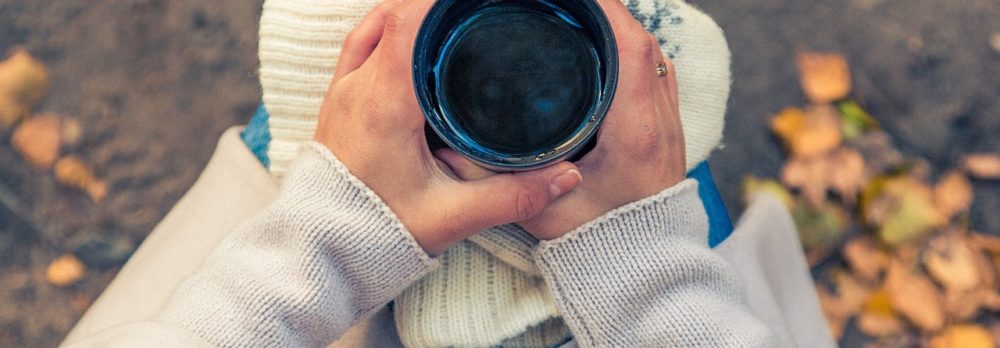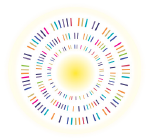More and more we are seeing young women in their teens and 20s with ovarian cysts or even full blown PCOS. While the cause of PCOS is unconfirmed, there does appear to be connections with family history, insulin resistance and lifestyle or environment. Women are exposed to a barrage of oestrogenic or hormone modulating chemicals which have flooded our environment over the last 50 or so years. Another big contributor is most certainly stress. It is even possible that chemicals absorbed by our mothers and grandmothers have contributed. So what is PCOS?
The common symptoms of PCOS are:
- No periods or periods that are irregular, infrequent or heavy
- Immature ovarian eggs that do not ovulate
- Multiple cysts on the ovaries
- Difficulty becoming pregnant
- Excess facial and or body hair (hirsutism)
- Acne on the face and or body
- Scalp hair loss
- Darkened skin patches (acanthosis nigricans)
- Mood changes
- Depression
- Anxiety
- Possible insulin resistance
Although some women with PCOS have regular periods, high levels of androgens and also the hormone insulin can disrupt the monthly cycle of ovulation (when eggs are released from the ovaries) and menstruation. The average menstrual cycle is 28 days with one ovulation, but anywhere between 21 and 35 days is considered ‘normal’. An ‘irregular’ period cycle is defined as either – eight or fewer menstrual cycles per year OR menstrual cycles longer than 35 days. For some women, periods may be ‘irregular’ or stop altogether, and sometimes PCOS means that periods fail to commence. For women whose menstrual cycles have lengthened, ovulation may stop entirely or only occur occasionally. Some women also experience heavier or lighter bleeding during their cycle.
The hormone insulin is thought to be an important part of the development of PCOS. Insulin is needed in the body for control of blood sugar, and ‘insulin resistance’ is thought to be a key part of the development of PCOS. Insulin resistance means that some parts of the body are ‘resistant’ to insulin, meaning that more insulin than usual is needed to keep blood sugar in the normal range. This means that insulin levels are often high or the body doesn’t respond normally to insulin. This in turn can affect the function of the ovaries, including hormone and egg production. So, insulin resistance should always be tested for.
The standard medical approach is to use the Oral Contraceptive Pill which essentially masks the hormonal problem. This can be helpful for some women who get symptom relief, but masking hormones does not resolve the underlying issue. Another common treatment, Metformin, is also often used to help with insulin resistance, but has some common side effects.
Herbal medicine has much to offer women experiencing PCOS:
There are different types of cysts and this may also change the treatment options in Complementary Medicine. Naturopathically, there are specific herbs that work to break down cysts in the body, improving the lymphatic system, that support micro-circulation to the ovary, that support the immune response and improve liver clearance of hormones. However, really getting into proper naturopathic treatment would mean coming off the pill and using ovarian tonics and hormonal modulating herbs.
In some cases, a salivary hormone test can be useful to monitor the balance of testosterone, estrogen and progesterone levels. It is also important to test the adrenal hormone, DHEA ,which if elevated can indicate stress a triggering factor – in fact, stress causes PCOS in 20% of cases. Another test to consider is the LH/FSH ratio to see if there are any abnormalities with the pituitary hormones – we would partner with your GP for this. Please bear in mind that if you need to have surgery on a cyst, the hormonal abnormalities that led to it are usually still there and need to be addressed.
Herbal Medicine is universally about treating the underlying cause, not masking the symptoms. I would choose specific hormone modulating herbs to support healthy ovulation, improve the health of the ovaries, normalise hormonal levels and clear cysts.
There are three specific herbs for treating ovarian cysts
1. Chaste Tree
Officially Vitex agnus-castus, this herb is used for up-regulating progesterone – often decreasing for women in their 40s and often lacking with incomplete ovulation. Vitex is a Hypothalamic-pituitary-ovarian regulator – so it regulates all the hormone signals that support normal female physiology. It is also commonly used for female acne. To be really effective however it needs to be dispensed and monitored by a Naturopath or Herbalist who knows what dose is right for you, when to take it and how long to use it for.
2. Peony
Peony is also a pituitary – ovarian regulator and what we call an Ovarian Tonic. It is used for a wide range of female reproductive conditions and has traditionally been used for ovarian dysfunction together with Licorice. Again this herb should only be used by a qualified Naturopath or Herbalist who can assess your situation.
3. Licorice together with Peony
This combination has been clinically proven as effective in reducing testosterone production from the ovaries and to improve ovulation. The combination of Licorice and Peony has been used in TCM for centuries and now used extensively in western herbal medicine for ovarian cysts and PCOS. The combination alters the Luteinising Hormone vs Follicle Stimulating Hormone ratio that is abnormal in PCOS.
Licorice is called an ADRENAL TONIC – it helps our body to regulate the amount of stress hormones including cortisol, produced by your adrenals. High stress is exactly what can lead you into hormonal abnormalities as you are always siphoning off your hormonal pre-cursor DHEA to make stress hormones instead of using them to produce healthy levels of Progesterone which protect you from developing ovarian cysts and other female hormone problems. Progesterone protects us from the negative effects of Oestrogen. Progesterone is also rapidly declining in your 40s and many are more susceptible to hormonal problems. Licorice and Peony in combination has been shown to reduce testosterone levels and improve the oestradiol to testosterone ratio after 4 weeks of taking.
There are many ways a Naturopath can help you with female hormonal problems such as ovarian cysts right up to full blown PCOS. In my opinion, Herbal Medicine has many answers that far surpass what the pharmaceutical industry has to offer. Women’s bodies work amazingly well with herbal medicine. If you are worried or identify with anything described in this article, I encourage you to book an appointment with me to discuss.



